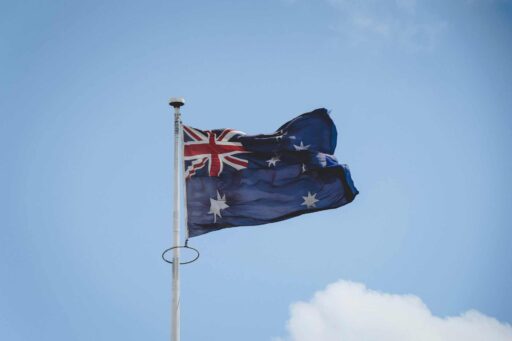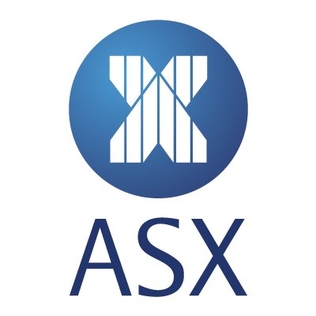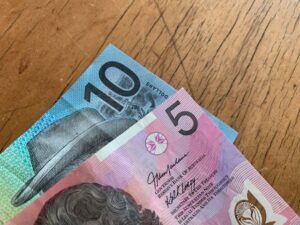Investing in Australia as an expat or non-resident comes with a unique set of tax, legal, and financial considerations.
Whether you are a temporary visa holder, permanent resident, or foreign investor, understanding how to invest as an expat in Australia means understanding the rules governing property ownership, stock market participation, superannuation, and taxation.
If you are looking to invest as an expat or high-net-worth individual, which is what I specialize in, you can email me (advice@adamfayed.com) or WhatsApp (+44-7393-450-837).
This includes if you are looking for a second opinion or alternative investments.
Some of the facts might change from the time of writing, and nothing written here is financial, legal, tax or any other kind of individual advice, or a solicitation to invest.

Australia offers a strong economy, a stable financial system, and an open investment market, making it an attractive destination for expats looking to invest in real estate, the stock market (ASX), businesses, or retirement funds.
However, non-citizens must navigate Foreign Investment Review Board (FIRB) approvals, tax residency rules, capital gains tax (CGT) implications, and restrictions on certain financial products.
Australian Expat Tax Rules
How Tax Residency Affects Expats
The Australian Taxation Office (ATO) classifies individuals as either Australian tax residents or non-residents, which determines how income, investments, and capital gains are taxed.
Tax residents must report worldwide income, while non-residents are taxed only on Australian-sourced income but at higher rates with no tax-free threshold.
Australian tax residents must declare foreign salaries, rental income, dividends, and capital gains and can benefit from the tax-free threshold (AUD 18,200 in 2024) and progressive tax rates. They are also eligible for certain tax offsets and deductions.
Non-residents, however, pay tax on Australian income from the first dollar at a rate of 30+%, face higher capital gains tax (CGT) on property sales, and may be taxed on their foreign income in their home country depending on tax treaties.

Australia has Double Taxation Agreements (DTAs) with over 40 countries, including the UK, US, Canada, and Singapore, which help prevent double taxation.
DTAs determine which country has primary taxation rights over different income types and allow expats to claim foreign tax credits for tax paid abroad. Expats should review their home country’s DTA with Australia to avoid double taxation on foreign earnings.
Expats classified as Australian tax residents must report all foreign income to the ATO, including salaries, rental earnings, and investment gains.
How to Invest as an Expat in Australia
Investing in the Australian Securities Exchange
The Australian Securities Exchange (ASX) is one of the world’s largest stock markets, offering access to a wide range of investments, including individual shares, exchange-traded funds (ETFs), managed funds, and bonds.

Can expats buy stocks in Australia?
Yes, foreign residents, temporary visa holders, and non-residents can invest in ASX-listed stocks and other securities. However, the ability to trade in Australia depends on:
- Residency status (temporary residents and non-residents may face additional tax and reporting obligations).
- Brokerage account eligibility (some Australian brokers require tax residency in Australia).
- Tax treatment of investment income (non-residents have higher withholding tax rates).
Opening a Brokerage Account as a Non-Australian Resident
Expats can open an Australian brokerage account, but some brokers have restrictions on foreign investors. The process typically requires:
- A Tax File Number (TFN) for Australian tax residents.
- Proof of identity (passport, visa, or residency documentation).
- An Australian bank account for funding the brokerage account.
For non-residents, an international brokerage account may be required if an Australian broker does not allow non-resident trading.
Global brokers like Interactive Brokers, Saxo Bank, and eToro allow ASX trading for foreigners, but make sure to check the pros and cons of each platform if they’re apt for your needs.
ASX Franking Credits for Tax Residents
Franking credits are a tax advantage for Australian residents, allowing them to offset dividend tax paid at the corporate level. However:
- Non-residents cannot claim franking credits, meaning fully franked dividends are not refunded.
- Expats who become Australian tax residents can benefit from franking credits once they establish tax residency.

Investment Options for Expats on the ASX
- Individual Stocks – Major ASX-listed companies like BHP, CSL, CBA, and Woolworths are attractive long-term investments.
- Exchange-Traded Funds (ETFs) – Offer diversification across Australian and global markets (e.g., VAS for the ASX 300, IVV for the S&P 500).
- Managed Funds – Actively managed portfolios by Australian investment firms (some funds have restrictions on non-resident investors).
- Bonds and Fixed Income Securities – Government and corporate bonds provide stable returns with lower volatility.
Investing in Australian Real Estate as an Expat
Can an expat buy property in Australia?
Yes, foreign residents, non-residents, and temporary visa holders can buy certain types of property in Australia, but they must obtain Foreign Investment Review Board (FIRB) approval, unless they qualify for an exemption.
FIRB generally approves purchases of new properties, off-the-plan apartments, and vacant land for development, but substantial amount of fees are required for the application.
However, in Feb 2025, the Australian government announced a ban on foreign home buyers including temporary visa holders.
Hence, from 1 April 2025 to 31 March 2027, foreigners are not allowed to buy established dwellings in the country, which may or may not be extended after a review.
Taxation on Rental Income for Foreign Investors
Non-residents who earn rental income from Australian property must pay tax at a rate of 30+%, with no tax-free threshold.

However, they can claim deductions for maintenance, depreciation, and mortgage interest to reduce taxable income. In contrast, Australian tax residents are taxed on rental income at progressive rates (0% to 45%) and can benefit from negative gearing, which offsets rental losses against other taxable income.
Capital Gains Tax (CGT) and Withholding Tax on Property Sales for Expats
Foreign property owners must pay Capital Gains Tax (CGT) when selling Australian property. Non-residents no longer qualify for the Main Residence Exemption, meaning they pay full CGT even if the property was their former home.
Additionally, a 15% withholding tax (from 1 January 2025) applies to all property sales. The previous threshold of AUD 750,000 has been removed for the contracts entered into on or after 1 January 2025.
But, even if a deal closes in 2025, the previous 12.5% withholding tax will still be applied to any sales agreement signed until the end of 2024 for property valued at at least $750,000.
Can expats get a mortgage in Australia?
Foreigners can apply for mortgages, but Australian banks often impose stricter conditions, including:
- Higher deposit requirements (typically 20–30%).
- Proof of foreign income and residency status.
- FIRB approval before the loan is approved.
While expats can invest in Australian property, they must navigate FIRB regulations, tax obligations, and financing restrictions before purchasing real estate.
Business and Entrepreneurship for Expats in Australia
Australia has a strong business environment, stable economy, and open policies for foreign investors, making it an attractive destination for expats wanting to start or invest in a business.
However, non-citizens must meet specific legal, tax, and visa requirements before operating a business.

Can expats start a business in Australia?
Yes, non-citizens, temporary visa holders, and permanent residents can start businesses, but the requirements vary:
- Australian citizens & permanent residents:
- Can freely start and operate a business without restrictions.
- Eligible to register a sole trader business, partnership, or company.
- Temporary visa holders (e.g., skilled workers, student visas):
- Limited ability to start a business—most visas prohibit self-employment.
- Need to check visa conditions before registering a business.
- Non-residents (foreign investors):
- Can set up an Australian company remotely, but must appoint a resident director.
- Cannot operate as a sole trader or partnership without Australian residency.
Investment Opportunities in Australian Startups & Private Equity
Expats looking to invest rather than start a business can explore:
- Venture capital and angel investing in Australian startups.
- Private equity funds that target emerging Australian industries.
- Franchises, which provide structured investment opportunities for expats.
Offshore and International Investments for Expats in Australia
Expats living in Australia can keep offshore investments in their home country or other financial hubs. These investments may include foreign stocks, mutual funds, property, or business interests, but they are subject to Australian tax laws if the expat is classified as an Australian tax resident.
How are offshore investments taxed in Australia?
As mentioned, expats who are Australian tax residents must report worldwide income, including:
- Dividends, interest, and capital gains from foreign investments.
- Rental income from overseas properties.
- Business income from foreign sources.

If an expat is a non-resident for tax purposes, they are not taxed on foreign investments in Australia, but their home country may still impose taxes.
Foreign Exchange Risks for Expats Investing in AUD vs. Other Currencies
Holding offshore assets in foreign currencies exposes expats to forex risk, especially if they plan to convert funds to Australian dollars (AUD) later. Strategies to manage currency fluctuations include:
- Investing in multi-currency accounts to hedge against exchange rate volatility.
- Using global ETFs and diversified portfolios to balance currency exposure.
Using International Brokerage Accounts While Living in Australia
Expats in Australia can open international brokerage accounts with platforms like Interactive Brokers, Saxo Bank, or eToro to access global markets. However, these accounts may be:
- Subject to foreign tax withholding in the country where the investment is held.
- Reportable to the Australian Taxation Office (ATO) under foreign income disclosure rules.
For better clarity on tax rules on investments, expats investing offshore should seek expat financial advisors to minimize double taxation risks and ensure compliance with Australian tax laws.
Pained by financial indecision?

Adam is an internationally recognised author on financial matters with over 830million answer views on Quora, a widely sold book on Amazon, and a contributor on Forbes.



